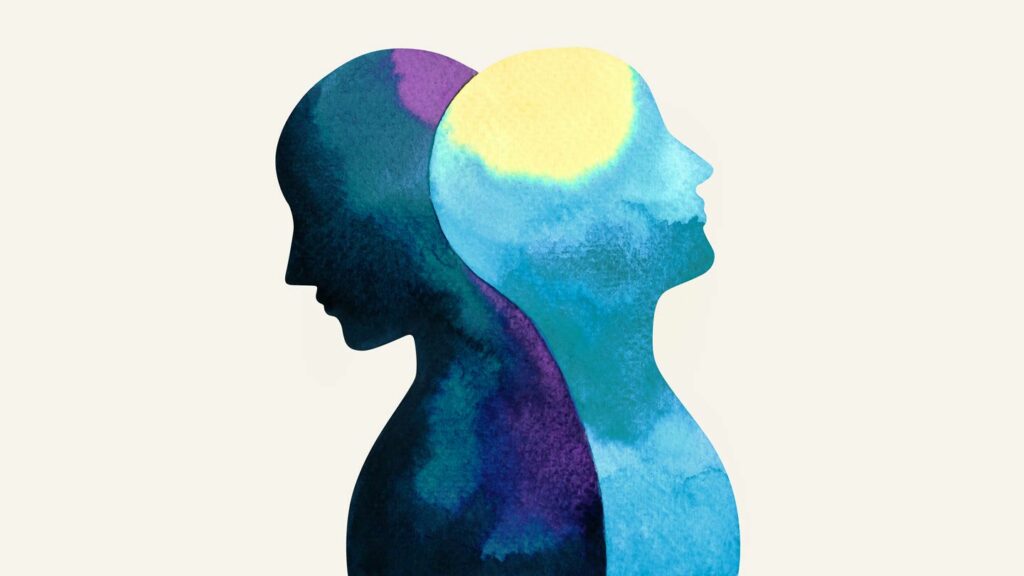Cyclothymia is a mental disorder that is characterized by mood swings. It can be difficult to diagnose, as the symptoms can be very similar to those of other mental disorders. In this blog post, we will discuss the symptoms of cyclothymia in detail. We will also provide tips on how to get help if you think you may be suffering from this condition.
Contents
- 1 What Is Cyclothymia?
- 2 Symptoms Of Cyclothymia
- 2.1 Mood swings
- 2.2 Fatigue
- 2.3 Irritability
- 2.4 Sleep problems
- 2.5 Depression
- 2.6 Anxiety
- 2.7 Risky behavior
- 2.8 Racing thoughts
- 2.9 Easily distracted
- 2.10 Difficulty completing tasks
- 2.11 Problems with relationships
- 2.12 Social isolation
- 2.13 Emotional roller coaster
- 2.14 Unable to concentrate or focus
- 2.15 Loss of appetite
- 3 How It Is Treated?
- 4 Conclusion
What Is Cyclothymia?
Cyclothymia is a milder form of bipolar disorder. People with cyclothymia have episodes of hypomania and depression. However, these episodes are less severe than those experienced by people with bipolar disorder. Cyclothymia can last for years and can cause significant disruption to a person’s life.
Symptoms Of Cyclothymia

There are various symptoms of cyclothymia that can be difficult to spot. It is a low-grade form of bipolar disorder, so the symptoms are not as severe as full-blown bipolar disorder. However, they can still have a major impact on your life. Symptoms of cyclothymia include:
Mood swings
You may go from feeling happy and excited to feeling down and depressed. These mood swings can happen several times a week or even several times a day. For instance, you may be in a great mood in the morning, but by the afternoon, you’re feeling completely down.
Fatigue
Cyclothymia can cause extreme fatigue. This may be due to the condition itself or from lack of sleep. Fatigue can make it difficult to concentrate and make decisions. For instance, you may find it hard to get out of bed in the morning or feel exhausted by mid-afternoon. This fatigue can interfere with work, school, and other activities.
Irritability
Cyclothymia can also cause irritability. This may be due to the changes in mood that cyclothymia causes. Irritability can make it difficult to deal with day-to-day tasks. For example, you may find yourself snapping at your partner or children more easily than usual.
Sleep problems
Cyclothymia can also cause sleep problems. This may be due to the changes in mood that cyclothymia causes. Sleep problems can make it difficult to deal with day-to-day tasks. For example, you may find yourself sleeping for long periods, then having difficulty sleeping when you need to be active.
Depression
Cyclothymia can cause periods of depression. This may be due to the low points in mood that cyclothymia causes. Depression can make it difficult to enjoy activities that were once enjoyable. For example, you may no longer take pleasure in hobbies or spending time with friends and family.
Anxiety
Cyclothymia can also cause periods of anxiety. This may be due to the high points in mood that it causes. Anxiety can make it difficult to concentrate and make decisions. For instance, you may find yourself worrying about things that are out of your control.
Risky behavior
People with cyclothymia often take risks without thinking about the consequences. This can be anything from engaging in risky sexual behavior to spending large amounts of money impulsively. For instance, someone with cyclothymia may have unprotected sex or spend all their savings on unnecessary items.
Racing thoughts
When you have cyclothymia, your brain is going a mile a minute. You’re thinking about everything and anything all at once, and it can be tough to focus on any one task. This can lead to feeling scattered and overwhelmed, as well as problems with completing tasks.
Easily distracted
Cyclothymia can make it hard to focus on anything for too long. For example, you might start a project with enthusiasm, but then quickly become bored and move on to something else. A person with cyclothymia may pressure others to keep up with their high energy levels and become easily bored.
Difficulty completing tasks
Cyclothymia can also make it hard to stick with something long enough to see it through to the end. You may start projects with good intentions, but soon lose interest and move on. For example, you may start exercising with gusto, but then give up after a few weeks.
Problems with relationships
The mood swings associated with cyclothymia can also make it difficult to maintain healthy relationships. When you’re in a low mood, you may withdraw from friends and family. When you’re in a high mood, you may be more impulsive and reckless. This can lead to conflict and strained relationships.
These are the period when cyclothymia feels low. The other symptoms are as follows:
Social isolation
Cyclothymia can make it difficult to connect with others and participate in activities that were once enjoyed. A person may feel too irritable or sad to interact socially, which can lead to feelings of isolation and loneliness.
Emotional roller coaster
Cyclothymia can cause extreme mood swings, from elated highs to crushing lows. These sudden changes can be difficult to manage and may leave a person feeling out of control.
Unable to concentrate or focus
Cyclothymia can make it hard to focus on tasks or activities. A person may feel easily distracted and have difficulty completing projects or goals. This can lead to frustration and feelings of inadequacy.
Loss of appetite
People with cyclothymia may lose interest in food and eat less than usual. This can lead to weight loss. for instance, someone with cyclothymia may go from eating three meals a day to only eating one meal a day.
Overall these are the symptoms of cyclothymia that you should be aware of. If you are struggling with any symptoms, please reach out to a professional.
How It Is Treated?

The first step is to seek professional help from a mental health expert. This is important because cyclothymia can be easily mistaken for another disorder, bipolar disorder and the wrong diagnosis can lead to improper treatment. The next step is to develop a treatment plan with your mental health professional.
Medication: There is no specific medication for cyclothymia, but your doctor may prescribe mood stabilizers or antipsychotics to help control your symptoms. Mood stabilizers can help even out your mood swings and make them less severe. Antipsychotics can be helpful if you have psychosis, which is a break from reality.
Therapy: Therapy can be an important part of treatment for cyclothymia. It can help you learn how to deal with stress, manage your symptoms, and make positive changes in your life. Cognitive behavioral therapy (CBT) is a type of therapy that is particularly helpful for cyclothymia.
In CBT, you work with a therapist to identify negative thoughts and behaviors and replace them with positive ones. CBT can help you learn how to manage stress and deal with difficult situations in a more positive way.
Self-care: Taking care of yourself is an important part of managing cyclothymia.
- Getting regular exercise: Exercise can help improve your mood and reduce stress.
- Eating a healthy diet: Eating nutritious foods can help you feel better physically and mentally.
- Getting enough sleep: Getting enough rest is crucial for managing cyclothymia.
- Reducing stress: Stress can trigger or worsen symptoms of cyclothymia. Finding ways to reduce stress, such as relaxation techniques or yoga, can help.
- Support: Having a support system of family and friends can make a big difference in managing cyclothymia. Talking to others who understand what you’re going through can be helpful. You may also want to consider joining a support group for people with cyclothymia.
If you think you or someone you know may have cyclothymia, it’s important to see a mental health professional for an evaluation.
Conclusion
It may be concluded that cyclothymia is a serious mental illness that needs to be diagnosed and treated by a professional. If you or someone you know is exhibiting any of the above symptoms, please reach out for help. Cyclothymia can be effectively managed with medication and therapy, so there is hope for those affected by this disorder.
If you think you may be suffering from cyclothymia, please consult a mental health professional. They will be able to properly assess your symptoms and recommend the best course of treatment.
For further information and suggestions, please contact Therapy Mantra. We have a team of expert therapists and psychiatrists that can help you overcome this problem. Get in touch with us right away to learn more about our services. You may also make an online therapy session or download our free Android or iOS app.


